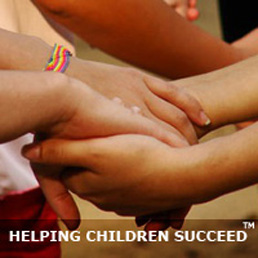Auditory processing and the development of language and literacy. Bailey P.J., Snowling M.J.. Br Med Bull (2002) 63 (1): 135-146. doi: 10.1093/bmb/63.1.135
This paper considers evidence for basic auditory processing impairments associated with dyslexia and specific language impairment, against a back-drop of findings from studies of the normal development of auditory and phonological processing. A broad range of auditory impairments have been implicated in the aetiology of these language-learning disorders, including deficits in discriminating the temporal order of rapid sequences of auditory signals, elevated thresholds for frequency discrimination and for detection of amplitude and frequency modulation, impaired binaural processing and increased susceptibility to backward masking. Current evidence is inconsistent, but suggests that not all children with language difficulties have non-verbal auditory processing impairments, and for those that do, the impact on language development is poorly understood. Some implications for clinical practice are discussed.
Although children make use of visual cues when learning language, audition is of primary importance for language acquisition. The fact that language development can be severely compromised as a consequence of audiometrically-defined hearing impairment is prima facie evidence for the role of auditory processing in language development. Here we review claims that a range of more subtle impairments of auditory processing may be associated with, and possibly causally linked to, specific deficiencies in language and literacy. Space limitations prohibit discussion of claims concerning co-occurring subtle sensory impairments in vision and touch.
The language learning impairments that have received most attention in this context are dyslexia and specific language impairment (SLI). A commonly accepted definition of dyslexia is that it is a specific learning difficulty, primarily affecting the acquisition of reading and spelling, such that these skills are below the level to be expected for a given age and general cognitive ability. Some dyslexic children have concomitant language problems, but in 'discrepancy defined' samples of children with at least average IQ, oral language deficits are not wide-spread. In contrast, the term specific language impairment is applied typically when the non-verbal IQ score is at least 80, and performance on at least two oral language tasks is significantly below the level predicted from IQ. However, it is important to note that there is no consensus about the IQ criterion that should be applied, and there is considerable heterogeneity within language-impaired samples.
Some investigators have assumed a common substrate for dyslexia and SLI (in effect that dyslexia is a mild form of SLI), but this assumption is likely only to be justified for children whose SLI is characterised by expressive language difficulties and phonological processing problems, rather than for those who exhibit pragmatic language abnormalities, involving difficulties with use of language in interaction. The distinctions between different forms of language difficulty have sometimes been obscured by the use of the term 'language learning impaired', but it is important to note that SLI children have more extensive language problems than dyslexic children, encompassing poor vocabulary, grammatical deficits and problems with the comprehension and production of sentence structure.

![]() Our Dynaread team members are required to hold themselves accountable for serving our clients in adherence with our core values...
Our Dynaread team members are required to hold themselves accountable for serving our clients in adherence with our core values...
Contribute with scientific and overall integrity.
Retain the focus on the needs of each individual child.

Dynaread has been developed in the trenches of actual remediation, with our feet firmly planted on the ground. Scientific research is essential (and we consistently use it), but we also understand the realities at home and in school. Not all homes have two parents, not all Dad's or Mom's are always home, there is oftentimes no money, schools lack staff or funding. We listen, we observe, we discuss, and we build the best solutions we can for older (ages 7+) struggling readers.
